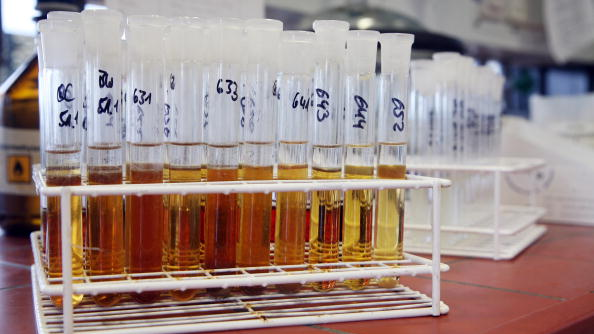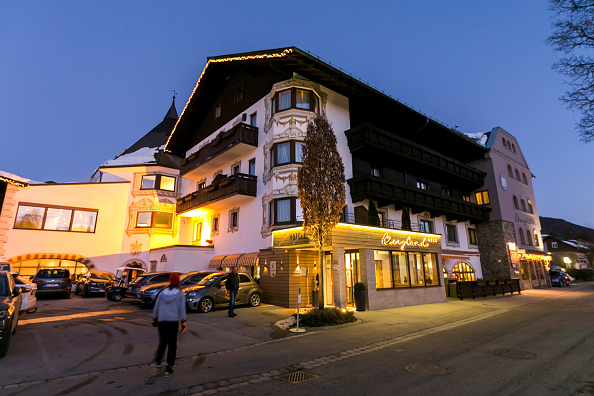
Blood and urine samples at the Doping Control Laboratory of the Biochemical Institute, the University for Sports in Cologne, Germany. /VCG
Blood and urine samples at the Doping Control Laboratory of the Biochemical Institute, the University for Sports in Cologne, Germany. /VCG
A German sports doctor on trial for masterminding an international doping network for athletes admitted on Tuesday to helping athletes with blood doping for years but said he made no profit.
The defendant, identified in Germany only as Mark S., is on trial, facing multiple charges in relation to helping at least 23 athletes from eight countries gain an unfair advantage over several years.
The case is a result of "Operation Bloodletting" under which police raided the Nordic Ski World Championships in Austria in February 2019 and arrested athletes two hours before the start of the men's 15 km cross-country event. Mark S. was arrested in Germany.
"I did not make a profit from doping," he said in a statement read by his lawyers in court, "For me it was always important that there was no damage to the athletes' health."
They believe he was involved in the practice from at least the end of 2011.

The Bergland hotel in Seefeld, Austria, where skiers were arrested in a link of suspected of doping network, February 27, 2019. /VCG
The Bergland hotel in Seefeld, Austria, where skiers were arrested in a link of suspected of doping network, February 27, 2019. /VCG
Four other suspects are on trial accused of helping him with the collection and supply of blood.
If convicted, the 42-year-old doctor could be put behind bars for between one and 10 years. The trial is set to continue until at least mid-December.
Blood doping is aimed at boosting the number of red blood cells, which allows the body to transport more oxygen to muscles, thereby increasing stamina and performance.
While no big-name sports stars are currently involved, the doctor is alleged to have helped dope athletes who competed at both the 2014 and 2018 Winter Olympics.
According to the prosecution, he is also accused in the doping of cyclists who competed at the 2016 summer Olympics, as well as the 2018 Tour de France, the 2016 and 2018 Giro d'Italia and Spain's Vuelta in 2017.
French police detained two people right after the end of this year's Tour de France earlier this month as part of an investigation into suspected doping in the Arkea-Samsic team. The unspecified pair were later released.
(With input from agencies)